|
Christianity and the Development of Democracy and Human Rights
(1215 - present day Britain)
Have you ever considered that the nations that developed the concept of the modern democratic state, which gives its
citizens freedom, without exception all have Christian foundations?
Democracy is a political system in which the supreme power lies in the body of citizens who can elect people to
represent them.
In a totalitarian state, the political authority exercises absolute and centralised control. Hitler, Stalin and
others like them, abused their power to oppress and kill. This abuse of power developed a culture of fear at home / abroad
and millions have been murdered because of the actions of totalitarian states.
In a democratic state, the government's power over the people is limited and it is kept accountable by the people.
A free press can expose their failings and expose corruption and elections force a legal and peaceful change of government.
|
|
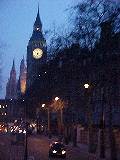
|
Within the United Kingdom, Members of Parliament (MP's) are elected by the common masses and are held accountable
by the people, who have the power to re-elect or not. Power comes from the majority and is for the majority.
|
The Foundations of Democracy
The word democracy was coined in ancient Greece. Athenian democracy was a classical democratic system developed in the
Greek city-state of Athens.
Modern democracy draws heavily upon the Christian concepts of freedom. One of the basic beliefs of Christianity that
helped the development of democracy is that God, the Creator of the heavens and the earth, made all people equal.
If God made all mankind equal, then some are not more equal than others!
The development of democracy in England was a slow process of the gradual transition of rights, from the Crown to the people. From this foundation, the British developed their democracy and the United States of America evolved their freedoms and government.
Democracy is literally "rule by the people", from the Greek demos, "people," and kratos, "rule". The word "democracy"
draws from the Greek word 'democratia' evolving into 'people power,' hence the coined phrase, 'power to
the people.' Democracy allows critics to voice their view, so that a common consensus can be established.
|
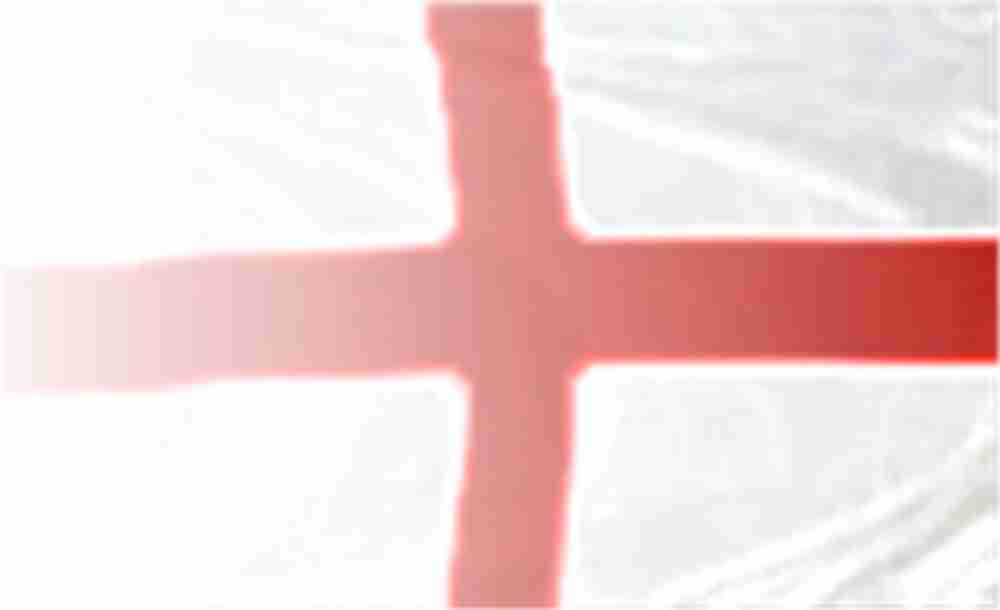
|
|
Magna Carta 1215
The Magna Carta is the royal charter of political rights given to the rebellious English barons by King John in 1215.
It is considered by the English speaking world as a foundational document of our freedom. The British regard it as a
cornerstone of their liberty and the American Founding Fathers drew heavily upon its principles.
The political war that led to the signing of the Magna Carta began when King John of England (1199-1216) levied the
first income tax in England to cover the cost of protecting his land in France. The church and the people were hit
hard by this tax, and the king was having trouble with the Pope too.
At the death of Hubert Walter in 1205, Pope Innocent III and King John had a major dispute over the appointment of
the new Archbishop of Canterbury. This dispute would caused great trouble in England.
King John refused to accept Stephen Langton, an Englishman who was active in the papal court at Rome, to be
appointed as the Archbishop. King John was punished by the Interdict of 1208, and for the next five years,
English priests were forbidden from administering the sacraments, even from burying the dead and the churches
across the land were shut down and most of the bishops left the country.
|
The Great Charter
The corpses piled up, people could not marry and the English, because of their belief in the power of the Roman
Catholic Church, could not be saved! The Barons had had enough of the entire disaster and the cruel taxing was
hurting everyone; their response was to revolt.
On the 15th June 1215 the signing of The Magna Carta, the 'Great Charter' was something of a compromise, a
treaty of peace between King John and his rebellious barons.
Archbishop Langton drew up the grievances into a
form of statements that constitute a complex document of 63 clauses and 5,000 words. It dealt with what a king
could and could not do to his subjects, what money and service he could demand, how judges should
administer law, the rights of the Church, the townspeople, the merchants and a setting down of standards and weights.
| |
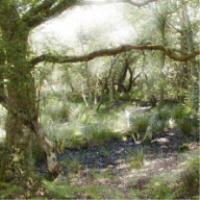
|
One portion read: 'No freeman shall be seized or imprisoned except by the lawful judgment of his equals or by the law
of the land. To no-one will we sell [into slavery], to no-one deny the right of justice.'
The Magna Carta was not democracy for the people, but greater rights for the twenty-five richest landowners of
England. The barons were allowed, if necessary by force, to compel the king to obey the charter. In later years,
the charter became almost a manifesto of royal power.
In the Holy Bible, the prophet Samuel made a charter for the first king of Israel, King Saul, and taught the
people what a king should or should not do and wrote it in a book; and of course they had the Mosaic Law as
well, (1 Samuel 8:9-17 and 1 Samuel 10:20-25).
Parliament Established 1295
King Edward I of England (1272-1307), on his return from fighting in the Crusades, set about restoring order in England
and wiping out corruption among the barons and royal officials.
His great inquiry set to recover royal rights and to re-establish law and justice. The proceedings took place under
the Statute of Gloucester in 1278 and the Statute of Quo Warranto of 1290.
In 1295 the first Parliament was set up to give the impression of representation before the King. Parliament comes
from the French word, 'Parle' meaning to speak,' and the word Parliament in French is Parlement. The wealthy were
consulted in matters, thus giving an appearance of recognising their rights. The reality was different and Parliament
had been set up to help King Edward retain his power. The common people who worked the land still had no
representation.
|
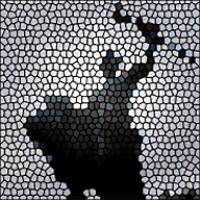
|
|
Peasants Revolt 1381 and the Rev. John Ball
King Richard II (1377-1399) had become king at the age of ten and just four years later he was faced with the mass
popular uprising known as the Peasant's Revolt of 1381.
To raise funds for the French war, an unfair poll tax was adopted by the government, which caused massive resistance,
as everyone had to pay one shilling, which was then a large sum of money. The country had still not recovered
from the Black Death (bubonic plague) of 1348 when 1/4 - 1/3 of the country's population died (out of four million
inhabitants). To make matters worse, incidents of the plague re-occurred in 1361-1363 and 1369-1371.
Reverend John Ball was a preacher of righteousness, one who was feared by the bishops but loved by the common folk.
Rev. Ball had no parish of his own and so preached in the fields to all whom would listen and thousands ate his
every word. His sermons were intertwined with a message of hope for the troubles of the common people. He used
the Holy Bible to defend the people's rights and express the need for equality.
Rev. Ball said, 'In the beginning we were all created equal [Genesis 1:26]. If God willed that there should
be serfs [peasant/servant], he would have said so at the beginning of the world. We were formed in Christ's
likeness and they treat us like animals. Matters cannot go on well until all things are held in common
[Acts 2:44-47].'
The peasants marched on London in their thousands and King Richard defused the situation by promising reforms.
When they dispersed the army was let loose and thousands were slaughtered.
The ring leader, Rev. Ball was to be made an example of. He was hung, drawn and quartered (which was the
practice in those days). The process included being hung till he was nearly dead, cut down and disembowelled
whilst still alive, and then finally chopped into four quarters and stuck on spikes for all to see.
|
Freedom of Knowledge
When the Roman Emperor Constantine was converted to Christianity in 312AD, he soon extended freedom of
religion. It was the first time that the Christian faith made a massive impact on the state and it led to the beginnings
of religious tolerance, replacing the extreme persecution of faith in previous years.
However, as the many years went on, corruption abounded in the established church, where people sought office, not
because of a call from God, but because of a lust for power. That power was often abused and later, the Reformation
would challenge all the failings of the Roman Catholic church.
However, amidst those who sought office for power, were those who sought to truly represent the Christian faith
for the betterment of humanity. William Tyndale (1494-1536) was one such person. He believed that the state or the church
should not have a monopoly on knowledge, because it could be abused.
He translated the Bible into English, which laid the foundations for the King James Version. He left England in
1524 and eventually was murdered in Antwerp because of his belief in freedom of knowledge.
|
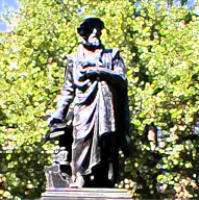
| |
The English Bible brought knowledge to those outside of the established authorities and helped bring accountability
and freedom of thought to the people. No longer did they have to trust the priest or person in authority, they could
study for themselves and interpret the Bible themselves.
It would take a very long time for the people to truly be free to share knowledge and thoughts, but those who went
before William Tyndale, and those who followed his example, laid the foundation for free speech and freedom
of knowledge - and they often paid for this with their lives.
Freedom of Religious Belief
There are many who contributed towards the free expression of religious belief, especially as the church of Rome
grew corrupt and persecuted those who interpreted the Holy Scriptures differently from their view.
John Knox (1514-1572) was a man who passionately believed that the truth of the Bible was more important than
the teachings Rome. He was a forerunner in the cause of freedom of religious belief, and though persecuted,
he stood before the highest authorities and challenged them. He is regarded as the father of the Protestant
Reformation in Scotland.
English Civil War (1642 and 1649) - Empowering Parliament
King Charles I increased the power of the clergy and was a firm believer that the monarch was God's representative
on earth and should not be made subject to man-made laws.
Under Archbishop Laud, the Church began to renew persecution of the ever-growing Puritan sect. In the first four years of the King's
reign, he had summoned and dissolved Parliament three times and then in 1629 he made the decision to rule without
the Parliament.
The Puritans were Bible believing Christians who believed the Bible taught the equality of all mankind. They did
not believe that the Monarch could reign supreme without any form of accountability. It was this belief that led
them into a confrontation with the king, as he consistently dissolved Parliament at his own whim. His Popish
tendencies also deeply concerned the Puritans.
The dispute between Parliament and the Monarch finally came to conflict when the English Civil War broke out
in 1642. It lasted for three years. Some people sided with Parliament and were led by the Puritan Oliver
Cromwell, whilst the Royalists followed King Charles I. Cromwell finally beat Charles' army and the king was
imprisoned on the Isle of Wight.
The Commons passed an ordinance establishing Presbyterianism. A purge of the moderates in Parliament, however,
left the radical elements with a majority in the so-called 'Rump Parliament' that created a High Court of Justice to bring
Charles to trial for high treason, where 135 judges were present.
King Charles I was executed in January 1649. The Rump, abolished the monarchy, and proclaimed a republican form
of government; first called the 'Commonwealth and Free State,' and later the 'Protectorate.' The House of Lords
was abolished as was the Anglican Church.
In 1650, King Charles II duly arrived in Scotland to claim his Kingdom. On the 12th December 1653 Cromwell, virtual
dictator of England, who had refused the crown of England, received the title of Lord Protector.
Cromwell used his office to seek reforms in the Church and Parliament, which was a common aim of the Puritans. He
tried to get 140 devout churchmen to run the country but it did not work so after five months they handed power
back to Cromwell.
In 1658 Cromwell died and on the 3rd September 1658 his son, Richard Cromwell was proclaimed Lord Protector of
The Realm. Cromwell had achieved much, founding the first modern disciplined army, developing some arts, protecting
the nation through the Navy, and of course, making Parliament more powerful. However, the nation did not like
his son.
The military officers on the council showed open animosity towards their civil counterparts, and resented
Richard's appointment as he was not good at his job. In order to raise money and settle such differences,
Richard was forced to dissolve the Protectorate and reinstate the Rump Parliament in January 1659. Total
anarchy was avoided by a decision to return to the ancient constitution of King, Lords and Commons.
Old George Monck brought his army from Scotland to London, where he quickly assembled a Parliament and
invited Charles II to take over the kingdom.
Parliament now had greater power than before, but the common people still had no representation whatsoever.
Oliver Cromwell's greatest legacy was to permanently limit the power of the Monarch and to empower Parliament.
This power was proved later on, when Parliament removed the Monarch James II.
|
An Argument Against Censorship 1644
John Milton (1608 –1674), was a man empowered and shaped by his Christian faith. His greatest work, 'Paradise Lost'
is an epic, generally considered as one of the greatest works in the English language. By many in the 18th and 19th
century, he was judged equal to all other English poets, including Shakespeare.
In all that he wrote, he was influenced by the Bible and his own Christian Puritan upbringing. Milton argued
against the Licensing Order of 1643. His argument against censorship is full of biblical and classical references
and was motivated by his stance of defending divorce.
His tract, 'Areopagitica: A speech of Mr John Milton for the liberty of unlicensed printing to the Parliament
of England' was published in 1644, at the height of the English Civil War.
Habeas Corpus Act 1679
Habeas Corpus is considered by many as one of the most important legal documents in the history of the English speaking
world. It helps safeguard individual freedom against arbitrary state action.
Habeas Corpus gave people a basic civil right, to protect them against illegal imprisonment. The writ ordered that
prisoners must have their case brought before a judge, so that they would receive a fair trial. The authorities
should have 'Habeas Corpus' 'have the body' of evidence before administering punishment.
Glorious Revolution and The Bill of Rights 1688-1689
Modern English Parliamentary Democracy
It has been argued that between the years 1688-1689, the modern English Parliamentary democracy was truly birthed.
The power of the Monarch was formally limited and the Bill of Rights became one of the most important documents
in British history.
King James II ruled for three years and was at the centre of the battle between Protestantism and Catholicism.
The Bible believing Protestants supported the political rights of Parliament, individual freedom and religious
liberty, whilst traditional Catholicism appeared to support the 'divine right' of the Crown.
The Glorious Revolution of 1688 saw the overthrow of James II of England, by Christian Parliamentarians, others and William III of
Orange. This led to the English Bill of Rights of 1689, which gave citizens certain rights and increased the
influence of the Parliament.
Cromwell had proved that the Monarch could be made accountable to the people, but the overthrow of James II
finally sealed the fate of the Crown - never again could it hold absolute power. From now on the Monarch's powers
were greatly restricted. He or she could no longer maintain a standing army, levy taxes, or suspend laws without
Parliament's permission.
The Bill of Rights 1689 formal title is 'Declaring the Rights and Liberties of the Subject and Settling the
Succession of the Crown.'
The Rights of Man 1791
English born Journalist Tom Paine, the son of a Bible believing Quaker wrote in 1791 when living in Philadelphia his most famous
book, 'The Rights of Man.' Paine said, 'Government cannot be the property of any particular man or family, but of
the whole community. It is wrong to say that God made the rich and poor. He made only male and female, and gave
the earth for their inheritance.'
Paine suggested that all men over twenty-one in Britain should be given the vote and this would result in The
House of Commons willing to pass laws favourable to the majority. The book was banned and burnt by the public
executioner as being seditious libel, but Paine escaped to France for his own safety. Paine held no copyrights
and freely encouraged people to print and sell his book as cheaply as possible, and sell it did.
|
|

|
The End of The Slave Trade and Slavery
William Wilberforce and many others like him, believed that the teachings of Jesus Christ emphasised the
humanity and rights of every person. Inspired by his Christian faith, Wilberforce and many others brought
an end to the Slave Trade and slavery itself within the British Empire.
Find out more here.
Tolpuddle, Christian Martyrs and Trade Unions 1834
In the village of Tolpuddle Dorset, England, lived many Bible-believing Methodists who were taught that all were
created equal in the sight of the God. However, England did not represent this view in its distribution of land
and wealth. Instead, the poorest were oppressed by the wealthy. In Tolpuddle, these Bible-believing Christians
would lead the battle for equality, as their own freedom was at threat.
Britain was the first country in the world to have an industrial revolution. The nation soon found itself working
in factories and living in cities. Britain became the 'workshop of the world', however conditions were terrible.
In the 1800s, as the British Empire flourished and goods were exported worldwide. there was great unrest at
home. Workers were treated poorly and soon, people began to try to form unions to demand basic rights for workers.
However, these workers were sacked for attempting to claim some basic rights and, because their employers often owned
their home, they lost their home as well. Children as young as ten were employed in factories for up to twelve
hours a day and some apprentices were compelled to work eighteen to twenty hours a day, living on-site, often in
the cellar with no concern for their welfare.
In 1832 Joseph Thompson, a farmer, came to Carlisle, northern England, to sell his wife, both having agreed to
part; she was offered for 50 shillings. After an hour the price was knocked down to 20 shillings, together with
a dog. The practice of wife selling, although illegal in Britain, was not unknown in rural areas.
Banished To Australia
In 1834 Robert Owen and five others farm labourers attempted to improve conditions and the lives of the
workers through his Grand National Consolidated Trade Union (GNCTU).
These six English farm labourers were tried in Dorchester Magistrate's Court and deported to Australia for
secretly forming a branch of the GNCTU. They were known as the Tolpuddle Martyrs and this
birthed trade unionism.
The Tolpuddle Martyrs were paid a minimal wage that barely covered the cost of rent and a loaf of bread.
When the people of England discovered that their employer tried to reduce their wages, making even the purchase of bread
almost impossible, sympathy for the workers grew.
250,000 people signed a petition for their release and 30,000 marched on Whitehall, London. This mass
movement came from the local to national forefront and after many years the six were returned to England.
Visitors to Dorset, England, can still visit the quaint rural village of Tolpuddle and visit the museum
that recalls the tragedy and triumph of the Christian Tolpuddle martyrs.
|

|
|
Votes Not Just For The Rich - Men's Right to Vote
In 1832 only two percent of the richest men in Great Britain were eligible to vote. This meant that ninety-eight
percent of the common people had no representation in Parliament!
In 1836 The People's Charter initiated the first working-class movement in Great Britain. Chartism (1838-1848) demanded universal suffrage [a universal right to vote] and vote by ballot.
For more than four years, supporters of the Chartist movement travelled the length and breadth of the country
getting their petition signed, stating that all men should be eligible to vote and that any man should be
able to stand for Parliament. 6,000,000 signatures were collected and then presented to Parliament. The people
had spoken and concessions were made in order to keep the peace.
The power of the people had been transferred from the market place to Parliament and the common people (men) were
now able to vote for someone who represented their concerns, without that person having to be rich and powerful.
|
Schools, Hospitals, Workers Rights
The teachings of Jesus Christ encouraged Christians to think of their fellow man. For this reason, Christians were at
the forefront of helping the poor, giving education and basic healthcare to the needy. As time when on, the state
followed the Christian example, as they realised they had a responsibility to provide for the needs of her citizens.
Municipal schools were founded as were hospitals and fire brigades who were there to help the masses. In 1892 Britain's
first coloured MP was elected when Dadabhai Naoraji won the Central Finsbury seat.
Lord Shaftesbury and Workers Rights
The Industrial Revolution that started in Britain would change the world. However, as Britain became the 'Workshop
of the World' the rights of the workers were largely ignored. Christian leaders used their voice to call for better
working conditions and rights to protect employees from abuse. Also, calls came from Christians and others to end
child labour.
The industrial revolution in Britain led to many great evils being inflicted upon children and the working classes.
Some mills never stopped working day or night and children were working all hours of day and night. Even
under 5's were working down the mines in appalling conditions.
In 1801, Anthony Ashley Cooper was born, later to be known as Lord Shaftesbury. Born into a life of privilege, he was
expected to reach the greatest heights of power in Britain. However as a devoted Christian, he chose to seek the
good of the people, in the name of Christ, rather than seek glory for his own name.
Challenging big business, the wealthy and the most powerful never made Lord Shaftesbury's life an easy one, but by
first hand experience, he explored the terrible conditions of the working classes. He managed to get public opinion
changed and passed laws to protect children, women and the rights of all to a better working life.
The Factory Act of 1847 restricted the working day for women and children between the ages of 13 and 18 to ten hours.
In 1848 the first Public Health Act was established. Many other acts led to greater human rights and the protection
of children.
The Right To Healthcare
When Christianity became the state religion of the Roman Empire, the provision of care for the poor and sick expanded.
In A.D. 323, the church leaders met in the First Council of Nicea; the church was encouraged to provide for the
poor, widows, strangers and the sick, and to create a hospital in every town.
In 1123, Raherus (Rahere) founded what is today, the oldest surviving hospital in England. He felt a distinct call
from God and his Christian faith motivated him to give up personal wealth and success, to live the life of a
servant.
Raherus is one of the founding fathers of healthcare in Britain. Raherus never achieved healthcare for all,
but his example
was followed and during the era of the 1800s', Raherus vision of healthcare for all, came closer to
reality; but it was not until the creation of the National Health Service (NHS) that his true vision was came to pass.
Women's Right to Vote
Greater Rights for the People
The Suffragettes (1897-1914), was a women's movement that demanded women's rights, especially the right to
the vote.
They organised high-profile campaigns to draw attention to their cause, including marches and demonstrations
up and down the country. Many drew publicity by being chained to railings and carrying out vandalism - because
of these acts numerous women were imprisoned.
Continuing in their campaign, many went on hunger strike, some were forcibly fed and the government introduced
the Cat and Mouse Act of 1913 whereby those on hunger strikes would be released when they became ill and then
re-arrested once they had eaten and become better.
The year 1911 saw the greatest industrial unrest in Britain's history. Nation-wide strikes of dock workers,
railwaymen and miners brought the country to a standstill. The National Insurance Act was passed to ensure
that the worker, employer and the government paid in money to pay for free medical treatment, sick pay,
disability and maternity benefits.
Emily Wilding Davidson hid in a broom cupboard in the House of Commons during the night of the 1911 census. In court when
she was asked her place of abode on the night of the census, she replied, 'The House of Commons.' Today when
visiting the House of Commons, the visitor can see a plaque and picture of Emily inside the cupboard.
In June 1913, in protest for her desire for the right to vote, she threw herself under the horse of King George V
at the Derby and was killed. This tragic event was caught on moving film and shocked the nation.
In England in 1913 the first women's magistrates were sworn in, but it took until 1956 for Britain to have
its first female judge, Rose Heilbron.
In 1914 The Rokeby Venus, one of the England's most important paintings, in the National Gallery was
slashed by suffragette Mary Richardson who wanted to destroy the most beautiful woman in mythological history.
In 1918 women (aged thirty and beyond) were given the right to vote following the passing of The Representation
of the People Act. This was a 'thank you' for their efforts as factory workers and farm labourers etc. during the
First World War (1914-1918) as the men had been conscripted. This provided yet more political power to the
common people. In the same year the American House of Representatives voted in favour of married women over the age of thirty being able to vote.
|
National Health Service
In 1945 when the Second World War (1939-1945) was finally over, the new Labour government came to power as Clement
Attlee was chosen as Prime Minister, instead of Britain's war hero Winston Churchill. The general public view was
'Cheer Churchill, vote labour.' The people had fought for freedom, personal rights and a better standard of
living; now the war was won, they wanted a better standard of living.
With the slogan 'Britain Belongs To You' the new government had come to power promising economic reform. Prime
Minister Attlee spoke of people being free from poverty and fear. New homes would be built, the masses were
to get free education and universities would be open to all.
Britain, as one of the wealthiest nations on earth, believed that no citizen should ever be without education
or health care, because of tragedy or poverty.
The welfare state was born in 1945 and the National Health Service (NHS) provided free basic health care for
all. In 1948 every household in the UK received a leaflet through their door explaining the people's rights
for free health care and the rebuilding of the nation began.
In 1957 British Prime Minister Harold Macmillan said his most famous saying: 'You've never had it so good' but
the nation did not believe him.
|
|
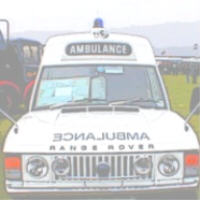
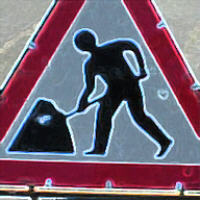
|
Human Rights and Oppressive Regimes
The Universal Declaration of Human Rights (UDHR) was introduced by the United Nations in 1948. The UDHR is the most
widely accepted statement of basic human rights. It is made up of thirty separate articles to include: the right
to vote, the right to education and freedom from unfair discrimination.
'Oppressive regimes' are defined as countries where there has been a systematic abuse of human rights by the ruling
government over a sustained period of time.
Organisations such as Amnesty International and Human Rights Watch inform the world of such oppressive regimes, challenge those involved and give consultancy advice to large corporations who operate or desire to operate within such a country. Often, by investing within these oppressive regimes, corporations are merely encouraging the ruling government to carry on as they are, propping up an unethical and abusive system.
Persecution of Christians
There are also many Christian human rights organisations that highlight the persecution that believers in Jesus
Christ (and political prisoners) face on a daily basis. Often Christians are put on trial with trumped-up charges
and no possibility of a fair representation, subsequently charged and placed in prison for crimes that they have
not committed or for the crime of converting to Christianity, evangelising or just for being a follower of Jesus
Christ.
Many governments and judges have had to back down over individual cases because of international letters of
condemnation which have flooded the government offices or prison, raising the awareness of unjust treatment to
individual prisoners. Letters addressed to the prisoner involved also bring encouragement as the Body of Christ
fulfils Hebrews 13:3, 'Remember the prisoners as if chained with them and those who are mistreated since you
yourselves are in the body [of Christ] also.'
Ways in which you can help persecuted Christians around the world
1. Make more people aware of persecution and discrimination of believers. If possible go and hear first hand
accounts or read some books which deal with these issues.
2. Write to media organisations asking them to highlight stories of persecution.
3. Write to your local government representative about your concerns. Support ministries that lobby
Parliament, Brussels etc. on behalf of injustice.
4. Write to the relevant embassies of those countries that persecute their citizens.
5. Ask multinational companies what they are doing to help stop injustices within the countries where their products
are being manufactured or sold.
6. Help persecuted Christians with items that they need such as Bibles or help with visas so that they can share
their stories to the outside world.
7. Support Christian ministries that empower persecuted Christians to fulfil their calling by assisting in
whatever they whatever needs they may have e.g. Bible training, rebuilding of their church, paying their medical bills or help
support their education and the feeding and clothing of their children.
www.asiaharvest.org ministers in some of
these areas and highlights persecution.
8.Pray for persecuted believers.
|
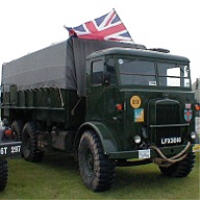

|
|
1950s - 1990s
After the struggle of the post-war period, the nation again prospered and there was general optimism that the
country was heading in the right direction. Standards of living increased as did wages and the gap between
'them and us' grew smaller. Life expectancy went up and there was more leisure time and many families started
to go on holiday.
Britain's Christian forefathers had fought for the basic rights of every person, but in an era of rapid change,
the rights of the individual and the power of government would clash in various conflicts.
Behind the original post-war optimism, things were getting very bad. In 1972 after three months of miners' strikes,
British Prime Minister Edward Heath declared a state of emergency. There was great violent confrontation between
unions and the government forces; widespread strikes brought the country to a three day working week. Britain
joined the European Economic Community (EEC) in 1973.
In 1979 Margaret Thatcher became the nation's first woman Prime Minister. Mrs. Thatcher, over the years stripped
the unions of their power and privatised industry. Interest rates rose to 15%, great for the savers, very bad
for those who owed money or had a mortgage and inflation was super-high. The NHS became under-funded and the link between
pensions and earning was abolished.
|
Unions Verses the Government
Britain's economy had become a disaster in the previous decades and today many credit Margaret Thatcher for making
the costly changes that led the nation into a new era of prosperity. But these changes would weaken the unions and
immediately lead to mass unemployment.
Some believed that the Unions had too much power and had brought the country to a standstill on too many occasions
and, without breaking their power, the future of Britain would be bleak.
The unions came into existence to protect the rights of the workers, but balancing those rights and the need for
economic reform for the nations development, would lead to another season of discontent. People were asking 'How
could Britain be a prosperous state where all could get free education, healthcare and quality of life, if the
economy was in such a state that it could not provide employment for its people?'
Tax Versus the People
In 1990 the Poll Tax caused many street demonstrations and violent opposition. It was a tax which was supposed to be fair on all, but many felt it let the rich off very lightly. There was mass outrage and demonstration in LondonŐs Trafalgar Square which turned into a riot. A total of 417 people were injured and 341 arrested. Eventually this was a battle too far for Mrs. Thatcher, who lost her power and soon the poll tax was axed.
Tony Blair, Prime Minister of Britain (1997-2007) said in 1995, ''We enjoy a thousand material advantages over
any previous generation, and yet we suffer a depth of insecurity and spiritual doubt they never knew.'
Twenty-first Century
The Government's Right To Take It's Nation To War Versus the People
In April 2003 the second war against Iraq took place. The government claimed the regime had weapons of mass
destruction, and the war succeeded in removing Dictator Saddam Hussein. This war would be the first modern case
of a 'Pre-emptive strike' on a hostile nation.
Prime Minister Blair did not need to consult Parliament before agreeing to the war and two million people marched
in – to protest under the banners, 'Not in My Name.'
The popular vote had given the government the power to go to war on BritainŐs behalf, but many believed the peopleŐs views should have kept the government more accountable. At the end of June 2004 Iraq was handed over by the Allies to the Iraqi Government to be self governed, but the constant terrorism that has plagued the nation has not allowed for a quick exit.
The People Ask For A Fair Deal For The Developing World
In the twenty-first century, pop-stars, charities, religious leaders and churches joined together in a campaign to ÔMake Poverty HistoryŐ. Churches motivated their faithful members and pop-stars took to the stage together, to draw the attention of the worldŐs richest countries to ending the debt that was crippling the developing world.
In 2005 people power helped stir Gordon Brown, the Chancellor of Britain to meet with eight world leaders from
the richest nations to wipe out billions of pounds in debt repayment for the poorest countries in Africa. This happened
in June, a week before the G8 Summit in Edinburgh, Scotland, where the world's most powerful government leaders would make
pledges to help the developing world.
Economic Power Versus People Power
Have the multi-national companies and the world's billionaires of the 21st century become the equivalent of land-owners in previous
generations?
The 2004 Rich List named twenty-nine billionaires in Britain, equal to one for every two million people, which is
a greater concentration than America, which has one billionaire to every 3.6 million people.
In 2005 there were five hundred dollar-billionaires, whose combined wealth is equal to the total income of nearly half the
world's population. Also the financial activity of the top two hundred corporations equals a quarter of all world economic
movement.
Some are concerned that the financial muscle of the world's largest companies allows them to have enormous influence around
the world, forcing smaller businesses out of the market, creating an unfair advantage and employing the poorest for
low wages. There is also concern that big business can 'encourage' governments to relax laws and allow unfair
competition - otherwise their investments will go elsewhere.
Economic powers such as the International Monetary Fund (IMF), The World Bank, European Commission and The World
Trade, control and dictate to many of the poorer nations of the world - especially in Africa. These financial
organisations offer loans or capital debt relief to these countries if they nationalise certain industries, e.g.
health care or electricity etc.
Many suggest that these moves help the rich, but hurt the poor. They suggest that non-elected large corporations
move in with their investments and (whilst they employee people), the profits go outside of the nations to the
rich. Thus the poor do not benefit and the people who have elected their President or Prime Minister to act in
their best interests feel betrayed. Many in the developing world state that the poor stay poor and the rich become
even richer.
Some are now concerned that the power which flows from the polling-stations, to the government, has now landed into
the hands of the multinational corporations, who have enough influence to dictate their will to the 'most
willing' government.
These corporations can help fund political parties, huge political campaigns on television, national newspaper
adverts and bill boards etc. so that when the government comes to power, they can expect certain 'privileges.'
In the twenty-first century many are asking 'Has globalisation led to the interests of multi-national
corporations superseding the best interests of the people?'
Psalm 37:16 'A little that a righteous man has is better than the riches of many wicked.'
History of England / Britain Go
Origins of the English language Go
|
|